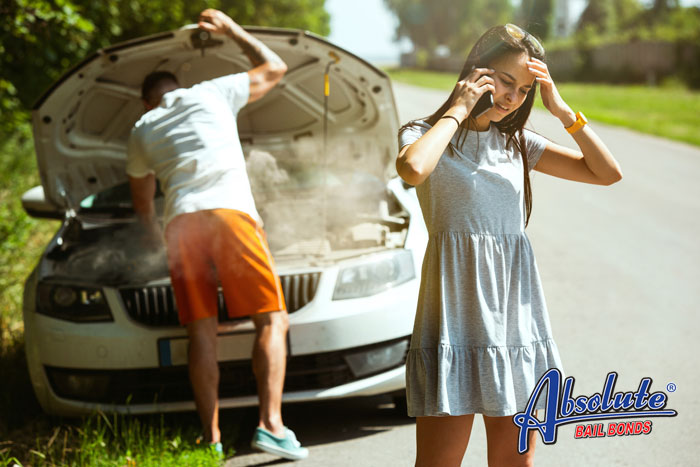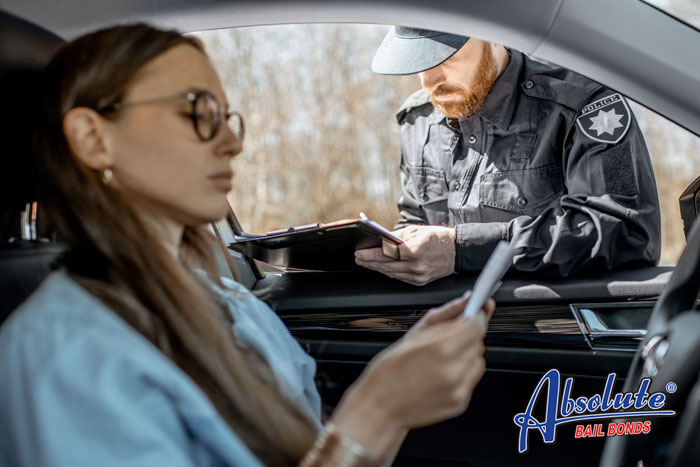
Keep Your Car Running Smoothly This Summer
For many of us, the long days of summer means a chance to take long and scenic road trips. We use the time to drive to beaches, visit out-of-the-way hiking trails, and drive to distant relative’s homes for long weekends. We love the sun and warm weather but seldom stop to think about the toll the heat takes on our vehicles.
The good news is that as long as you follow these summer car maintenance tips, your car will be ready and able to accompany you on all of your summertime adventures.
Check Your Battery’s Attachment
Most people only think that they have to worry about their battery during the winter because the cold weather forces the battery to work harder when starting the car. While the battery doesn’t work as hard during the summer months, the combination of heat and constant vibrations can cause it to steadily break down. The best way to preserve your battery during the summer is to make sure it’s securely attached so that it experiences minimal vibrations.
Another thing to look for is corrosion. Summer heat leads to excessive evaporation which can cause the battery connections to corrode. Routinely checking and cleaning the connections helps keep the battery in perfect operating order.
If your battery is three years old, bring your car to a mechanic so they can check the battery and see if it’s time to replace it.
Get Into the Habit of Checking the Coolant
The warmer it is outside, the harder your car has to work. It’s going to go through more coolant. Each month, take a few minutes to check and top off both the coolant and the oil. Keeping these topped off spares you the headache of being stranded on the side of the highway and will ultimately extend the life of our car. If either the coolant or oil is low each time you check, bring your car in so your mechanic can check for leaks.
Keep an Eye on the Tire Pressure
Asphalt gets extremely hot in the summer which is hard on your tires. In addition to checking the tire pressure about once a week and keeping them properly inflated, you also need to keep an eye on their condition. At the start and end of summer, you should consider getting them rotated and balanced. The more diligent you are about the health of your tires, the better your vehicle’s fuel economy will be this summer.

Tips for Staying Safe While Camping
Camping is a great way to enjoy both the fantastic summer weather and breathtaking beauty California has to offer. The great thing about camping is that it’s also affordable and usually something you can do at the spur of the moment.
The key to getting the maximum amount of enjoyment out of your camping adventure is making sure you are conscious the entire time you’re camping.
Be Knowledgeable About Basic First Aid
It doesn’t matter how careful you are, accidents do happen and anytime there’s an accident, there’s a risk of an injury. Before you embark on a camping adventure, set aside some time to acquaint yourself with basic first aid. Make sure you know how to tie a tourniquet to slow bleed, how to apply a pressure bandage, and how to manage a sprain.
While you’re learning how to treat common camping injuries, you should also learn how to identify and manage things like allergic reactions, head injuries, hypothermia, and heatstroke.
Knowing how to deal with a camping health crisis is great, but all that knowledge won’t do you any good if you don’t have the right supplies with you. Put together a first aid kit that has everything needed to deal with common camping injuries and make sure you have the kit with you at all times. Never go on a hike or boating adventure without your first aid kit.
Research the Area Where You’ll be Camping
Once you know where you’re going camping, take some time to familiarize yourself with the camping area. Know what dangers are in the area and learn the steps you can take to protect yourself. Most parks will let you know if there are plants, animals, and particular parts of the park you should avoid. If you learn that the park has bears, raccoons, and other forms of wildlife that have gotten comfortable with campers, take some time to make sure you have equipment that will protect your camping gear from these animals. You should also memorize the steps you should take if you find yourself in a face-to-face encounter with wildlife.
Pack a Dangerous Plants Book in Your Kit
You should always have a book that helps you identify dangerous plants that are native to the area where you’re camping. This book will not only help you identify which plants you shouldn’t touch but will also provide useful tips about what you should do if you accidentally brush against one. Knowing what types of dangerous plants are native to your campsite helps you determine what salves and lotions you should include in your first aid kit.
Make Sure you’re Equipment is in Good Repair
Before leaving on your camping trip, look over your equipment and make sure it’s in good repair. Having equipment that is in perfect working order not only makes your camping experience safer but also increases how much you enjoy your adventure.
Check-in With a Loved One
Always let someone know what your camping itinerary is and schedule regular check-ins. While this might seem like an inconvenience, knowing where to start searching for you if you don’t check-in can be a lifesaver if you fall and injure yourself so badly you can’t return to your campsite.
When it comes to camping safety, you can never be too cautious.

Prepare Your Pets for Fireworks
The Fourth of July is right around the corner which means people are going to set off fireworks. Even if you have no intention of being around fireworks, you need to take steps to protect your pets from them. Don’t assume that just because your neighbors have never set off fireworks in the past that you don’t have to worry about them.
The first thing you need to do to prepare your pet for the possibility of Fourth of July fireworks is to plan on the loud noises scaring your pet. Most pets hate fireworks. Consider getting a tight coat for your pet to wear which will help ease their anxiety. If you know that your pet is already sound sensitive and it suffers from anxiety, you should talk to your veterinarian about getting some calming medications.
As the evening grows long, don’t let your pet out of your house. The Fourth of July is one of those dates when you should complete your evening walk early in the evening. You want your pets to be tucked inside your home before the light show begins. If your pet has to go outside during, or even after the firework display, take them out on a leash. Animal shelters throughout California and the rest of the United States report that they get more reports of lost pets in the days following The Fourth. Almost all of these pets involve an animal who never runs off so their owner got too casual.
It wouldn’t hurt to take a current photo or two of your pet in the days leading up to the Fourth of July. Having a current photo that you can show local animal shelters, vet clinics, and post on lost pet social media sites drastically increases the odds of someone identifying your pet and returning them to you.
If you haven’t already gotten your pet microchipped, now is an excellent time to do so. The microchip makes it possible for animal shelters to quickly reunite you and your lost pet.
If possible, stay home so that you can comfort your pet. Even if they appear to be ignoring you, your presence really will make them feel better and it will also help them recover more quickly.
If you leave the house during the fireworks display, be careful while going through the doors. Expect your pet to want to bolt through the door with you.
When it comes to fireworks and pets, it’s in everyone’s best interest to prepare for the worst.

Fireworks and Safety
Fireworks are a fun and memorable way to celebrate the Fourth of July, but they can also be dangerous and in some cases have even been deadly. If you plan on setting off your own fireworks this Fourth of July, you owe it to yourself and your family to use common sense and practice firework safety.
Pay Careful Attention to Your Kids
Kids love fireworks and setting off an elaborate display with them is a great way to make new memories, but you don’t want the memories to include tears and emergency room visits. Never lose sight of the fact that fireworks and kids don’t mix. Encourage your kids to stand back while your setting up the fireworks and don’t allow them to play with any of the firework paraphernalia. Never leave your children unattended when there is even the smallest chance they could get into the fireworks.
Have a Ready Supply of Water
One of the biggest problems with fireworks in California is that they contribute to the wildfire problem. If it’s extremely hot and dry, you should want to hold off on using your fireworks until after you’ve gotten some rain. If you really can’t resist setting off the fireworks, at least make sure you have an ample supply of water on hand. In addition to keeping buckets, hoses, and sprayers close, you should also thoroughly spray the area and get everything damp before lighting the fireworks.
Don’t Light Duds
Yes, fireworks are expensive and it’s frustrating to have one that doesn’t perform well, but don’t try to get your money’s worth out of it by relighting it. Leave the duds alone. Lighting duds is how many people lose fingers and suffer extensive burns. In addition to not relighting it, liberally soak it with water before disposing of the defective firework.
Keep Medical Supplies on Hand
In addition to always wearing eye protection while setting off fireworks, you should also keep a medical supply kit close at hand. Make sure that the kit is liberally stocked with medical supplies that are designed to treat burns. If you get burned while lighting your fireworks, treat the injury right away and then seek professional medical help.
By putting safety first, you and your family will enjoy a fun Fourth of July holiday!

California Background Checks
Background checks are becoming routine. If you are interviewed for a job or fill in a rental application you can expect that the person handling the application will run a background check on you. Knowing that a background check is in the process always makes people curious about what kind of information the background check reveals.
The exact information that appears on the background check can vary a little depending on what filters the person running the check put into place. Most of the background checks are set up so that they show any criminal activity you’ve been involved with. Felony convictions should always appear on the background check. Misdemeanor and pending convictions don’t always appear on the report.
Different states take different approaches when it comes to pending charges and background checks. According to Criminal Watchdog, California has a policy that enables all pending charges to appear on a background check, this includes pending charges for misdemeanors as well as felonies. It is even possible for a person to set up a background check so that they receive an alert when/if the pending charge becomes a conviction.
According to I Prospect Check, California’s background checks for criminal convictions only go back seven years. The seven-year rule is regulated by the Civil Code 1786.10. The information that disappears from the background check after seven years includes indictments, misdemeanors, arrests, convictions, and police complaints. It’s worth noting that arrests that didn’t result in a conviction, pardons, and expungements are not supposed to appear on your background check.
You should also be aware that employers who run a background check are required to file and keep the background check for two full years after they’ve run it.
Don’t assume that just because more than seven years have passed since your last conviction or arrest you don’t have to worry about it impacting your ability to obtain a job or rent a place. It still can. While the information might not be on the background check your employers run, it could be mentioned when they check your references which will likely include former employers, friends, and family. It can also appear if they Google your name and find an old newspaper article, social media post, or police report.
Considering how easily criminal information can be uncovered even when it no longer appears on a formal background check, it’s in your best interest to reveal any unsavory parts of your past right away. This gives you a chance to appear forthright while also sharing your side of the story.

Keeping Your Kids Safe this Summer
Summer is finally here which means long days and lots of freedom for your kids.
While you want your kids to have a great time and make lots of good memories this summer, you also want them to stay safe. The good news is that it’s possible to do both.
Preventing Heat Stroke
One of the summertime dangers parents don’t always think about is heatstroke. While heatstroke in kids is rare, it does happen and it can be deadly.
Most cases of heatstroke in kids occur in cars. The inside of a car can heat up quickly during the summer months and if a child is strapped into a car seat, they can quickly develop a case of fatal heatstroke. This usually happens when a guardian has completely forgotten the child is in the car.
The best way to make sure you never accidentally leave your child in the car while you run into the store is by creating a reminder. One grandmother puts her shoes near the car seat. Other parents stick a note on their steering wheel. Some put their purses or cell phones next to their infant. What you do isn’t important as long as it makes it impossible for you to accidentally leave your child in the car alone this summer.
Don’t fool yourself into thinking that since you’re only going to be away from the car for a moment or two, that it’s okay to leave your child alone. It’s not. A single delay can be deadly. Even if your child is sleeping, take them with you.
If you don’t want to bring your child into the doctor/bank/grocery store. Have a responsible adult stay in the car with them. Make sure you leave the car running and the air conditioner parked. If possible, park in the shade. Make it clear that the person watching your child is not to leave the vehicle unless they take the child with them.
While Playing Outside
While it’s unusual for kids to suffer from heatstroke while playing outside, young bodies appear to have an easier time adapting to elevated temperatures than adult bodies, it can happen. The best way to prevent your child from suffering from heatstroke when they are outside playing is making sure they take frequent drinks of cool water and encouraging them to play in the shade during the warmest parts of the day.
Signs that your child is in danger of developing heat stroke are:
- Muscle cramps
- Nausea
- Skin is clammy and cool to the touch
- Your child’s body temperature has surpassed 104˚ Fahrenheit.
If you suspect your child is suffering from heatstroke, the first thing you need to do is get them to sit down somewhere that is cool. Encourage them to drink something cool, preferably which contains electrolytes. Wipe them with a cool damp cloth.
If your child doesn’t start to recover quickly or frequently suffers from bouts of heatstroke, you should seek medical assistance.

Updating Your California Driver’s License
Your driver’s license not only proves that you’re legally allowed to drive in California, but it also serves as your main source of identification. It’s important that all the information that appears on your driver’s license is current.
You should already know that you’re not allowed to drive on an expired driver’s license in California.
According to the California DMV, changing your address on your driver’s license should be one of the first things on our agenda following your move. It doesn’t matter if you’re moving to California from another state or if you’ve simply moved across the street, you have 10 days to contact the DMV about the change in residence. That really isn’t much time, so it’s in your best interest to pencil it into your schedule as one of the things you should do before you start unpacking.
Even though the California DMV doesn’t give you much time to change the address on your driver’s license, they have taken steps to make it as simple as possible.
In most California counties, you have three options for changing your address on your license:
- You can visit your local DMV office
- You can mail in a change of residence form to the DMV
- You can go online and fill out a virtual form which the DMV will file
While all options are good and legal, the benefit connected to going to the actual DMV office is that they will give you a temporary license that will have your new address on it. That way, if you do get pulled over and ticketed, the ticket information will go to your new address rather than your old one.
If you fail to contact the DMV about the change of address on your driver’s license in a timely manner, you may face a small, additional fee when you finally get around to completing the chore. While it’s unlikely that you’ll get a ticket for having the wrong address on your license (assuming it’s not expired) if mail concerning the ticket is sent to the wrong address, it could result in some substantial late fees getting attached to any ticket for moving violations the officer did issue.
The biggest risk connected to not updating your address on your driver’s license could be that it causes problems with your insurance company, which may use the failure to change the information as a reason to delay paying when you file a claim. They may even decide to drop your policy altogether.
When all is said and done, it’s best to simply take a few minutes and update your address.

You’ve Finally Graduated! Don’t Forget to be Smart!
It seems like you’ve been waiting your whole life to finish school. Many people consider the summer between high school and the time when they start college (or trade school, or simply start working full time) to be one of the most exciting and fun times of their life. While it’s okay to have fun and celebrate your accomplishments, it’s also important that you remember to play it safe during this time.
One of the biggest mistakes teens make after they graduate from high school is getting drunk, which is bad enough, and then compounding that mistake by getting behind the wheel. Don’t be the person in your group who spends the months following high school graduation dealing with the consequences of a drunk driving charge.
The first thing to remember as you celebrate your freedom from high school is that even though you’re legally an adult, you still aren’t old enough to legally drink. You should avoid alcohol as you celebrate your life. Getting caught with booze at this point in your life will result in you being charged with a “minor in possession.”
If convicted of minor in possession charges, your sentencing could include:
- Being required to do up to 32 hours of community service
- Having to pay a $250 fine
If you are convicted of minor in possession charges a second time, the sentencing includes:
- Up to a $500 fine
- As much as 48 hours of required community service
In addition to fines and community service, you will also lose your driver’s license for a full year after your MIP conviction. The conviction could also impact your acceptance into college and eligibility for some scholarships.
If you get behind the wheel after consuming alcohol as a minor, you are in even more legal trouble. Since you haven’t turned 21, any blood alcohol content that exceeds 0.01% is considered drunk driving. If your blood-alcohol level is 0.01% to 0.04% the officer who pulls you over will confiscate your driver’s license. The only way you can hope to get it back is by scheduling an Administrative Hearing during which you’ll learn how the county intends to handle the situation. You will likely be charged with minor-in-possession and may face additional consequences.
If your blood alcohol level is 0.05%-0.08%, you will be charged with a misdemeanor drunk driving charge.
The first conviction results in:
- A one-year suspension of your driver’s license
- Mandatory attendance in an alcohol education program that lasts at least 3 months
- Mandatory attendance in a youth drunk driving program
In many cases, additional charges, such as reckless endangerment, distracted driving, and minor in possession charges are also filed against the young drunk driver.

Telemarketer Fraud
If you hate telemarketers, you’re not alone. Legal Beagle reported that in 2017, Bank my Cell conducted a survey that revealed that out of 1,200 people, 75% of them actively avoided calls that they knew were from telemarketers. 85% of the people who responded to the survey reported that even the thought of dealing with telemarketers triggered anxiety-related issues.
The reason most of us loathe dealing with telemarketers is that the calls are time-consuming and the person on the other end of the line keeps pushing even though we’ve told them no several times. Most of us also hate feeling guilty when we have no option but to hang up on the irritating telemarketer.
It turns out, there’s another reason to avoid telemarketers. That reason is telemarketing fraud.
Cornell Law School defines telemarketing fraud as: “Phone and telemarketing fraud refers to any type of scheme in which a criminal communicates with the potential victim via the telephone. Because many reputable companies use telemarketing to conduct business, criminals can often effectively use the method as a way to obtain a victim’s credit card information or identity and then use this information to make unauthorized purchases elsewhere. Victims have difficulty distinguishing between reputable telemarketers and scam artists. Frequent victims of telemarketing scams include the poor, the elderly, and immigrants without strong English skills.”
Examples of common telemarketing fraud include:
- Selling a fake product via the telephone
- Telling you that for a seemingly nominal amount of money, you’re eligible for a free product/service/trip that the telemarketer has no intention of giving you
- Fake debt collection calls
Telemarketing fraud is illegal in California. Cases involving telemarketing fraud are covered by California’s general larceny statutes which are defined in California Penal Code Sections 484-490.
In California, if the amount of money/good gained through a telemarketing fraud case is less than $900, it’s considered a petty theft case. Sentencing can include six months in jail and a large fine.
If the telemarketing fraud case involves damages greater than $900, the accused will face felony charges. If convicted, they could be sentenced to a full year in prison, charged up to $10,000 in fines, and ordered to pay restitution to the victims.
One of the biggest challenges connected to telemarketing fraud is that many of the cases happen in different states or even different countries, which makes pursuing legal action difficult.
The best way to avoid becoming a victim of telemarketing fraud is not agreeing to any offers or providing any financial information until you’ve had a chance to thoroughly research the offer/business.

The Legal Ins and Outs of Catfishing
Catfishing isn’t the art of catching the bottom-dwelling fish that taste greatly fried. Catfishing actually refers to the act of using a false social network profile that allows you to pretend to be someone you’re not. This differs from a ghostwriter creating an account for their writing profile because the catfisher’s account exists purely for malicious purposes.
Each catfisher has their own reasons for creating the fake profile, some use the account to extort financial information, some use it for bullying purposes, some like to get compromising photos of their victims. The end result is that the catfisher almost leaves victims in their wake.
While it seems like catfishing should be considered fraud and illegal, at this point, there are no actual laws pertaining to the actual act of catfishing. But, in many cases, the catfisher uses their fake social media identity for some sort of illegal activity. In many cases, the catfisher knows that they’re engaged in illegal activity but assumes that since they’re using a fake profile, they won’t get caught. Catfishers also hope that their victims will be so embarrassed that they were taken in by the fake profile that they won’t even report the crimes. Another challenge victims who do report the crime face is that the catfisher may live in a different state, making it difficult to pursue legal action.
Examples of laws catfishers commonly break include:
- Copyright fraud
- Computer hacking crimes
- Fraud (uses false pretenses to gain money/goods/services)
- Identity theft
- Soliciting minors
- Illegally recording or photographing someone without their consent
A catfisher can destroy your life so it’s important to know the steps you can take to avoid interacting with a catfisher.
If you’re contacted via social media by someone you don’t know, spend some time checking them out before you respond to their friend request or personal message. See if they have anything in common with you such as a mutual friend or shared interest. Explore their own profile and make sure it contains the type of content usually found on a social media account, this includes interactions with other people.
Even if you’re confident this new contact is a legit person, you still need to be very careful about the type of information you provide them. Keep all of your interactions impersonal.
The single best way to avoid falling victim to a catfisher is to pay attention to your instincts. If you get a gut feeling that something isn’t quite right, you should block them from your social media accounts and stop all interactions. In this day and age, it’s better to play it safe than to be sorry.

